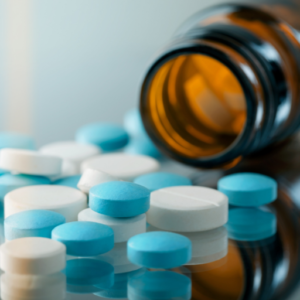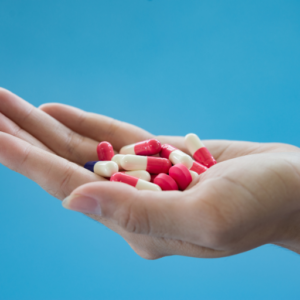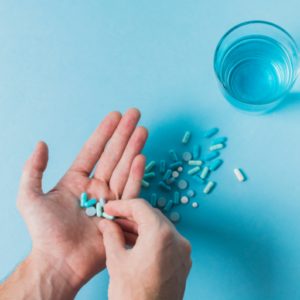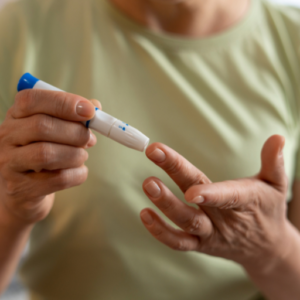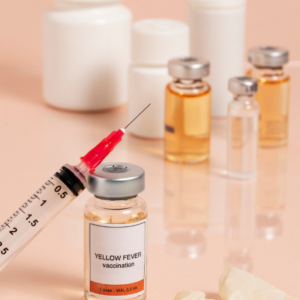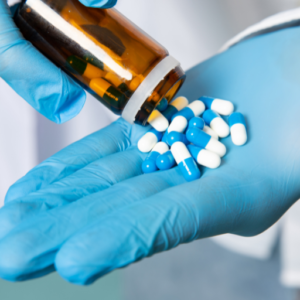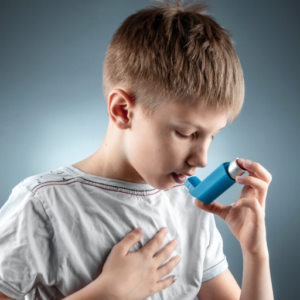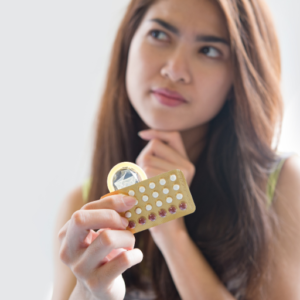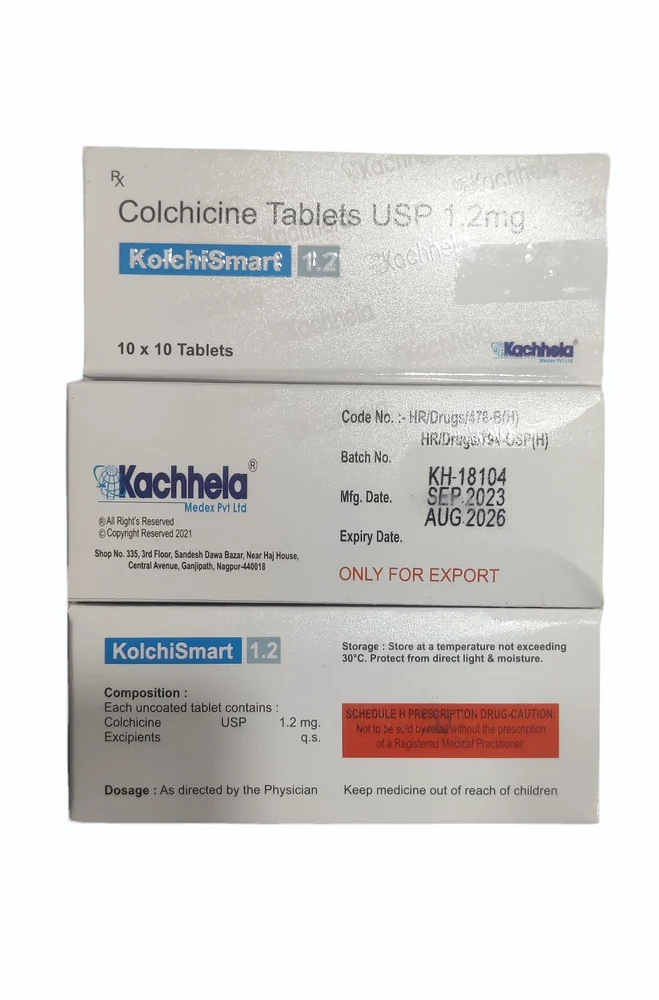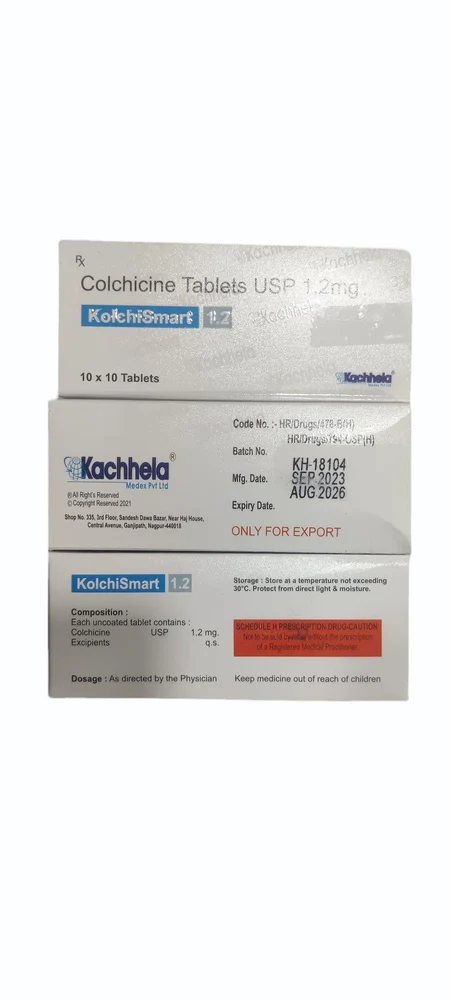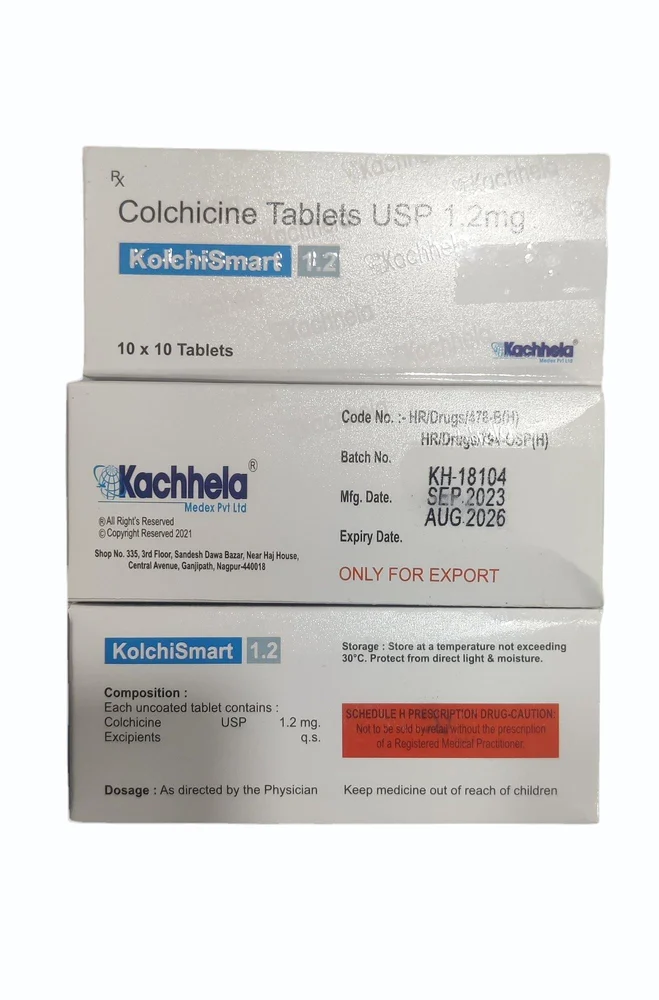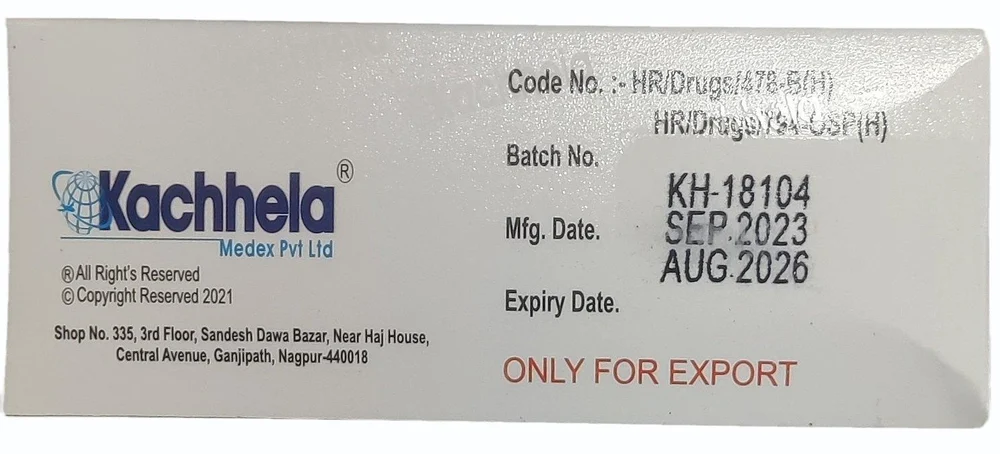Kolchismart 1.2mg
| Package | Per tablet | Savings | Price |
|---|---|---|---|
| 180 tablets | $0.15 | $8.28 | $35.28 $27 |
| 150 tablets | $0.15 | $6.4 | $29.4 $23 |
| 120 tablets | $0.16 | $4.52 | $23.52 $19 |
| 90 tablets | $0.17 | $2.64 | $17.64 $15 |
| 60 tablets | $0.18 | $0.76 | $11.76 $11 |
| 30 tablets | $0.2 | – | $5.88 |
What is this medicine?
COLCHICINE (brand: Kolchismart) is an anti-inflammatory medication traditionally derived from the autumn crocus. It’s used to treat and prevent gout attacks, manage familial Mediterranean fever (FMF), and may reduce complications from coronary artery disease (CAD) .
What should I tell my health care provider before I take this medicine?
They need to know if you have any of these conditions:
-
Liver or kidney disease
-
Blood disorders (e.g., low white cell or platelet counts)
-
Muscle disorders or are taking statins/other drugs that affect muscles
-
Allergic reactions to colchicine or similar medications
-
Pregnancy or trying to get pregnant
-
Breast‑feeding
-
If you’re using drugs that interact with colchicine, such as certain antibiotics, antifungals, HIV protease inhibitors, or grapefruit juice
How should I use this medicine?
-
For a gout flare: 1.2 mg (typically two 0.6 mg tablets) at first sign, followed by 0.6 mg one hour later. Do not exceed 1.8 mg over 1 hour, and wait at least 3 days before repeating .
-
For prevention of gout: 0.6 mg once or twice daily (max 1.2 mg/day) .
-
For FMF: 1.2–2.4 mg per day (one or two divided doses) .
-
Take by mouth, with or without food. Drink plenty of water.
-
Overdose: If you suspect overdose, seek emergency medical help immediately—colchicine has a narrow safety margin.
-
Note: This medicine is only for you; do not share it.
What if I miss a dose?
-
For flare treatment: If you miss the first dose, take it ASAP, then the second dose one hour later. If near next planned dose, skip the missed dose.
-
For prevention/FMF: Take when remembered, unless close to the next scheduled dose—then skip and continue normal schedule. Do not double doses
What may interact with this medicine?
-
Major interactions:
-
Antibiotics (e.g., clarithromycin)
-
Antifungals (e.g., ketoconazole)
-
HIV protease inhibitors (e.g., ritonavir, atazanavir)
-
Grapefruit or grapefruit juice
-
-
Others: statins, fibrates, digoxin, verapamil/diltiazem; risk of toxicity via muscle or GI issues
-
Always tell your healthcare provider about all medications, supplements, alcohol, or smoking.
What should I watch for while using this medicine?
-
Have regular blood tests to monitor kidney, liver, and blood counts .
-
Stop and seek help if you experience:
-
Severe diarrhea, vomiting, abdominal pain
-
Muscle weakness or pain, numbness or tingling
-
Signs of infection (fever, chills), unusual bleeding or bruising
-
-
Alert your doctor if pregnant, planning pregnancy, or breastfeeding.
-
Avoid grapefruit products.
-
Stay hydrated, especially if diarrhea or vomiting occurs.
What side effects may I notice from this medicine?
Serious – report immediately:
-
Severe GI distress (diarrhea, vomiting, stomach pain)
-
Muscle weakness, muscle pain, numbness/tingling
-
Unusual bleeding/bruising, signs of infection (fever)
-
Allergic reactions (rash, swelling, difficulty breathing)
Less serious – tell your doctor if bothersome:
-
Diarrhea, nausea, vomiting, abdominal cramps
-
Mild headache or sore throat
-
Hair thinning (rare)
Where should I keep my medicine?
-
Keep out of reach of children.
-
Store at room temperature, ideally 20–25 °C (68–77 °F); short period up to 30 °C (86 °F) is acceptable .
-
Protect from moisture and light.
-
Discard unused medicine after its expiration date.




